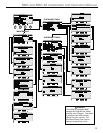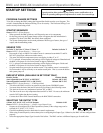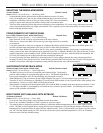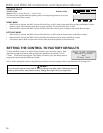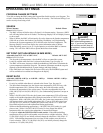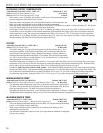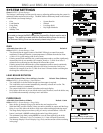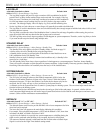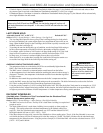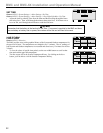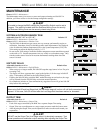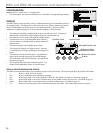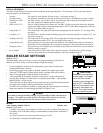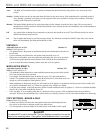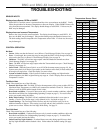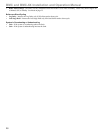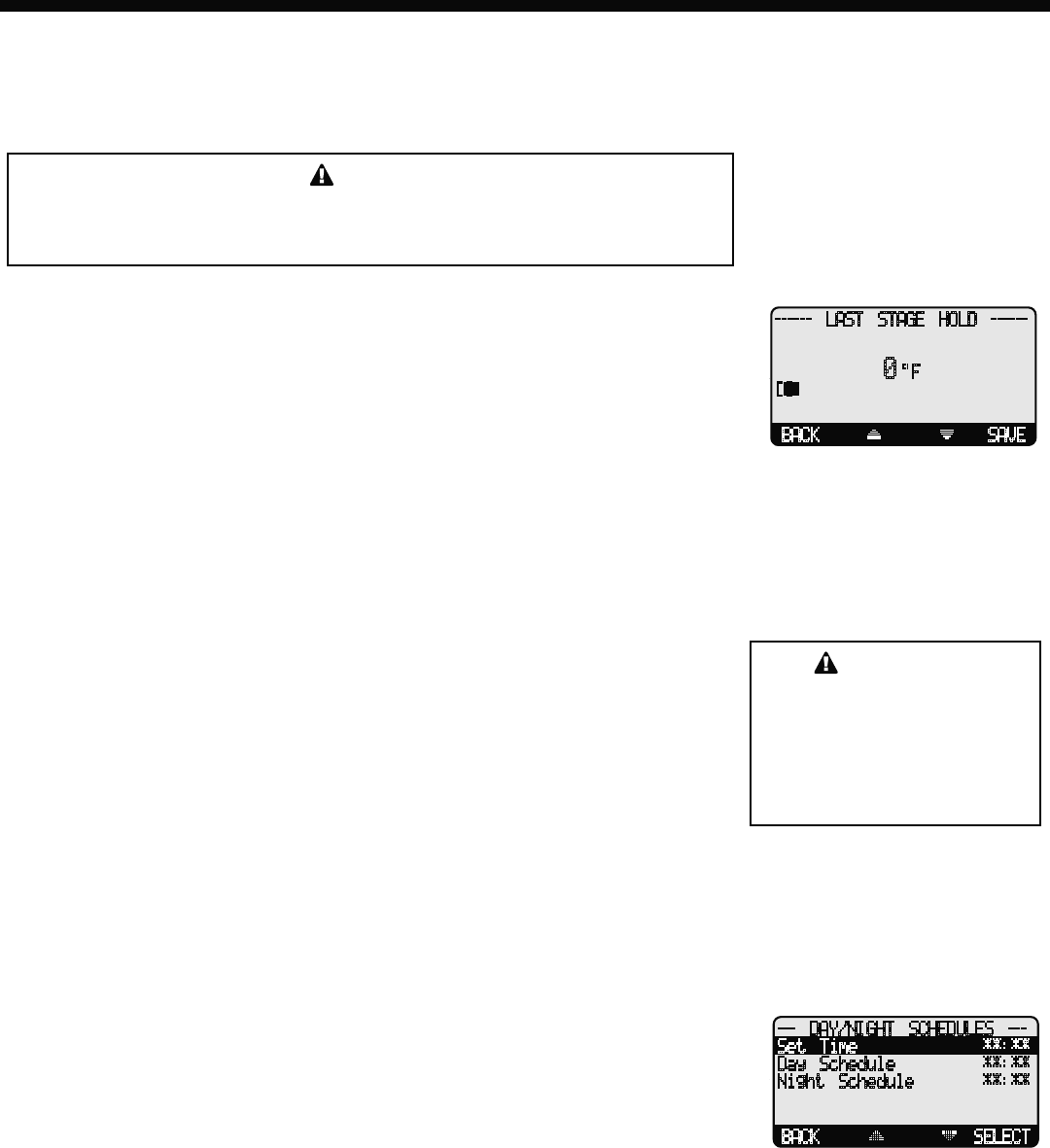
21
BMC and BMC-6X Installation and Operation Manual
• If Setback Input is selected as a Shutdown/Tstat/Setback Mode (See page 15), the Setback will not be activated unless a Short
dry contact signal is received on the Shutdown/Tstat/Setback terminals (31 and 32) as a signal.
• If Shutdown Input or Tstat Input is selected as a Shutdown/Tstat/Setback Mode (See page 15), the Setback will be activated only
when Night Schedule time has started.
ALERT
When using Soft-Off and Last Stage Hold, the last boiler stage will not turn off
until both parameters have elapsed. In this case, Soft-Off will start after the Last
Stage Hold.
LAST STAGE HOLD
Adjustable from 0F°/0C° to 30F°/17C° Default: 0F°/0C°
Button: MENU/<System Settings>/<More Settings>/Last Stg Hold
• The Last Stage Hold prevents short cycling of the Lead Stage during low load periods.
• In low load conditions, the system might require less output than the lowest fire on one
Stage. When the BMC brings on the Lead Stage, the Set Point is quickly exceeded, and
the BMC turns the Lead Stage off.
• To prolong the run time during this type of condition, use the Last Stage Hold setting to
let the system temperature exceed the Set Point by the number of degrees selected.
• For example, with a Set Point of 160°F and a Last Stage Hold setting of 10°F, the Lead
Stage boiler will remain on, at low modulation, until the Set Point reaches 170°F.
• In many cases, it is better to overshoot slightly than to short cycle a boiler.
• When Soft-Off is set to other than 0 seconds, the Lead Boiler will need to remain at or
exceed the Last Stage Hold for the Soft-Off period before turning off.
BACK SAVE
------ LAST STAGE HOLD ------
0
F
[]
WARNING
The temperature limits set on
the boilers must be higher than
the BMC Set Point. Read the
section at left for details that
will prevent erratic system
operation.
AVOIDING CONFLICTING BOILER LIMITS
• The temperature limits set on the boilers MUST be set considerably higher than the
BMC’s Set Point for the reasons detailed below.
• The BMC sensor is located in a common header some distance from the boilers.
• As the temperature rises in the header and before reaching the sensor location, energy is
dissipated. Therefore, the temperature in the header could be lower than that registered
by boiler sensors.
• In addition to the normal drop experienced between the boiler’s temperature and that
read by the BMC sensor, the Last Stage Hold setting must be accounted for. The boiler limit must be set above the Set Point
PLUS the Last Stage Hold PLUS the normal drop experienced in the piping.
• Using the previous example of a 10°F Last Stage Hold with a 160°F Set Point, the boilers’ limits must be set enough over 170°F
to prevent the boilers’ internal limits being reached. In this situation, the boiler high limit should be set at approximately 180°F
or higher to prevent the difference in boiler temperature vs. header temperature causing erratic operation.
DAY/NIGHT SCHEDULES
(Available when "Shutdown or Tstat" is selected from the Shutdown/Tstat/
Setback Startup menu option only)
Button: MENU/<System Settings>/<More Settings>/Day/Night Schedules
• The BMC has two levels of heat. The Day level is used when a building is occupied and
people are active.
• The Night (Setback) level is used when a building is not occupied, or when people are
sleeping. This setting reduces the calculated temperature by the Setback setting (See
page 20). If the Day calculated water temperature was 150˚F and the Setback was 20˚F,
the Night Schedule will run at (150˚F - 20˚F) = 130˚F.
BACK SELECT
--- DAY/NIGHT SCHEDULES ---
Set Time **:**
Day Schedule **:**
Night Schedule **:**
• If the Boost feature is being used, it uses the Day Schedule as a Boost ending point. That is, if the Day Schedule is set to start
at 6:00AM, the Boost will start 30 minutes prior to the Day setting at 5:30AM. The BMC will then raise the calculated water
temperature by the Setback amount. Using the previous example, at 5:30AM the BMC will raise the calculated water to 170˚F
(150˚F + 20˚F) until 6:00AM.



